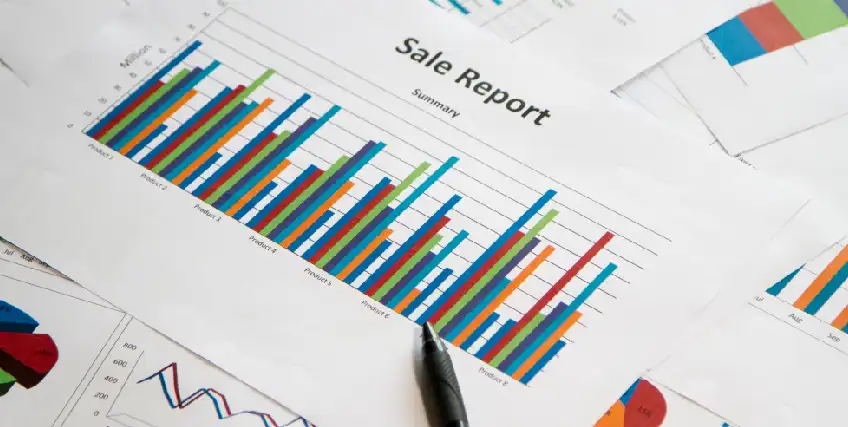Business Loan vs. Retirement Funds: Which Type of Funds Should You Use to Finance a Business
March 5, 2025 | Last Updated on: March 5, 2025

Starting a new business is never easy, no matter how great or profitable the idea. For many future business owners, the most challenging part of starting a business is actually finding capital.
The first place your entrepreneurial journey may start is with your personal savings.
Many people go straight for business loans, while others choose to dip into their hard-earned retirement savings. Retirement funds include money you already have stored away for the future, which can be used to finance a business in a more tax-efficient way than applying for loans. There are serious risks involved with using retirement savings to finance a business, though, and you may lose out on certain benefits.
Before you apply for a business loan or borrow from your 401(k), it’s important to understand the risks and advantages of each option. Here’s everything you need to know.
Types of business loans
People are often afraid to apply for a business loan because they aren’t sure how these loans work or what options are available. If this sounds like you, then you are not alone. According to a recent survey, 60% of business owners admit not feeling knowledgeable about accounting or finances.
To help you make the most informed decision, here’s a look at the many different types of loan options available to businesses today.
Term loans
A term loan is a common form of business financing where business owners receive a lump sum that they must repay (with interest) over a specific period of time. You can find many term loans offered by banks and online business lenders, and there are even options geared toward specific groups like business loans for women.
Term bank loans, especially unsecured loans, may be best suited for those looking to expand their existing business. That’s because these loans may have more stringent eligibility requirements, and will often look at your business and personal credit score, business cash flow, and P&L statements to qualify.
SBA loans
The Small Business Administration (SBA) offers guaranteed loan options through servicers such as banks and other financial lenders. The repayment periods for SBA loans vary based on how you plan to use the funds, but you can expect repayment terms of about seven years for working capital. Depending on the exact small business loan you request, a down payment may also be required.
An SBA loan is best for borrowers with solid credit who can wait longer for funding, since it can take a while to get approved.
Business lines of credit
When you open a business line of credit, you will have constant access to funding at any time, up to your stated credit limit. You’ll only pay interest on the money you withdraw, making it a far more flexible option than term loan financing. Business lines of credit are good for entrepreneurs with short-term financing needs, or small business owners who want a financial safety net in case of unexpected expenses.
Equipment loans
An equipment loan is a secured business loan that can help you purchase specific, business-related equipment. The loan terms sometimes match the life span of the equipment you want to buy, which also serves as collateral to secure the debt. Equipment loans are best suited for entrepreneurs who want to own their business equipment outright but want or need to spread out the purchase price.
Invoice factoring
Invoice factoring is not a go-to funding option for companies looking to raise initial capital, but it plays a crucial role for many beginning entrepreneurs. If you have a lot of unpaid invoices and need cash fast, you can sell invoices to a factoring company. They will offer you cash upfront (for a fee), then collect from the customer when the time comes.
Invoice financing
Like invoice factoring, invoice financing uses unpaid account balances as collateral for a cash advance. Instead of selling invoices to a factoring company, invoice financing allows business owners to maintain control over their invoices while freeing up cash flow sooner.
Merchant cash advances
Merchant cash advances are similar to term loans, providing a lump sum of cash that business owners can use to finance various expenses. Instead of making a fixed monthly payment on your cash advance, you may be able to make payments via fixed withdrawals from a connected bank account. You may also elect to withhold a percentage of your business’s daily sales to cover loan expenses.
Business credit cards
Business revolving lines of credit behave like personal credit cards. You can use a business credit card to cover business costs as long as you make minimum monthly payments as scheduled. This financing option is best for entrepreneurs with ongoing expenses like utilities, office supplies, and travel.
Microloans
A microloan is a miniature version of a traditional business loan. It’s a small loan of $50,000 or less that is typically offered through nonprofits and mission-based lending institutions. These loans are geared toward startups, newer businesses, and businesses that operate in low-income or disadvantaged communities. Microloans are best for startups seeking a small amount of capital to get their business off the ground.
Ways to finance a business with retirement funds
In addition to traditional business loan options, there are also ways to finance a business using your retirement account. Dipping into retirement funds to start a business isn’t right for everyone, but it can be done successfully, and, in some cases, may actually be the best option.
While there are many loan-based business financing options, there are only three ways to use retirement funds to start a new business.
Taxable distribution
If you have an IRA, you can take out a taxable distribution from your account at any time. If you are younger than 59 1/2, you will generally pay taxes on the funds as well as an early withdrawal penalty, especially from traditional IRA. Contributions (not earnings) can be withdrawn without consequence from a Roth IRA.
401(k) loan
Some 401(k) plan administrators allow owners to borrow up to 50% of their retirement account vested balance or up to $50,000, whichever is less. Borrowers have five years to repay this type of loan, but you must make payments at regular quarterly intervals and with interest.
The upside is that you don’t have to pay a higher interest rate to an outside lender for these funds. However, there may be certain penalties and costs depending on factors like on your age, so be sure to check IRS rules to learn more.
ROBS
The Rollovers as Business Start-Ups project, or ROBS, allows you to tap into an unlimited amount of retirement funds tax- and penalty-free. After forming a C-corporation, business owners roll over retirement savings into the new company and use the funds to purchase stock.
Your business must meet some requisites before you are eligible for this program. You must first establish a C-corp with a 401(k) retirement plan, then roll the funds from your personal 401(k) into the corporation’s retirement plan. A valid rollover for business startups requires that the company’s stock be purchased at fair market value. Shares can then be sold, generating the capital you need to launch your startup.
Dangers of borrowing from your retirement to fund a business
Just because you can use your retirement savings to finance a new business doesn’t mean you should. There are several dangers that come with dipping into these earmarked funds for your startup.
- If you leave your job before your loan is repaid, you will still be required to make payments until the loan is paid in full.
- If you’re younger than 59 1/2, the unpaid balance of your retirement savings loan will typically be considered an early withdrawal, subject to penalty fees and even income taxes.
- If your business is unsuccessful, you are still responsible for paying back any borrowed money.
- Even if you withdraw from a Roth (without penalties or tax implications on contributions), you could run out of retirement savings if you burn through the cash. This could limit your retirement possibilities and derail your plans.
Considering the pros and cons of using your retirement savings to finance your business is essential. Before withdrawing any money, find out what your retirement funds will look like if your company goes belly up. For many, the best option may be to use a low-interest business loan or line of credit to help get their business off the ground.
Why a business loan may be worth considering for business financing
Using retirement funds to start a new business is one option available to owners not interested in taking out a business loan. However, significant risks and personal liabilities can make or break your financial stability when going this route. For most entrepreneurs, the best choice for business financing is to look for a loan that meets your daily business needs and can help launch your company.
The top reasons a business loan is one of the best choices for business financing include:
- You can borrow a large sum of money to cover significant business expenses.
- Business loans offer easy access to funding for various business purposes.
- Loans may be forgiven if you meet certain criteria or if your business is unsuccessful.
- Your business credit will get a boost.
Other ways to finance a business
Besides retirement savings and business loans, there are other ways to finance your business dreams.
Personal savings are the first option for most budding entrepreneurs. If you haven’t started saving, look for a personal account that comes with features such as a high interest rate, easy-to-use mobile app, and excellent customer support.
Cashing out any investments not tied into a 401(k) is another funding option. Many entrepreneurs have started investing in crypto due to its high liquidity and wide selection of coin options. Although the market is volatile, investing in crypto can be a lucrative endeavor for entrepreneurs looking to raise capital for their latest startups.
Once you’ve maxed out your personal savings and investments, it’s time to look for potential investors to help you finance your business. Venture capital investors provide seed money to startups in exchange for a piece of the company and/or an active role in the organization. While sharing ownership is not always ideal, having an experienced business professional on your team can be beneficial.
If venture capital isn’t your thing, there are plenty of financing options to help you start your own business. For example, crowdfunding is a very low-risk way for up-and-coming business owners to finance their dreams. Crowdfunding usually involves submitting your business idea to a platform where investors and lay people can contribute to a business fund.
If you still need financing but don’t want to apply for a business loan yet, then your final option is to take out a personal loan to fund your startup. Many personal loan options exist, including those from banks, large financial institutions, and even online lenders.
Final thoughts
Business financing isn’t limited to just business loans. Alternatives such as crowdfunding, government funding programs, investors, and personal loans can give you the cash you need to get your business off the ground.
Another option is to dip into retirement savings to fund your next business idea. While it can be tempting to use the money you have saved through your working years, there is always the chance that the business fails and you’re left with nothing to fall back on for retirement. The best choice for most entrepreneurs is to find a business loan that meets their startup’s needs and nothing more.
FAQs about business loans and retirement funds
Can the SBA take my 401(k)?
Retirement funds held in a 401(k) can be used as the required down payment for certain SBA loans, such as an SBA 504. It’s important to check with your lender and retirement plan administrator to understand what you have available and how much can be borrowed.
How do I avoid penalty taxes on my 401(k) withdrawal?
If an early withdrawal is allowed by your 401(k) plan administrator, it may be subject to taxes and penalty fees if you don’t meet certain age or use requirements. These may not apply if you’re over age 59 1/2 or qualify for other exceptions.
Can you use a 401(k) as collateral on a business loan?
The IRS does not allow you to pledge your 401(k) as collateral for a business loan. Instead, you can take a loan from your 401(k) or, in some cases, use your 401(k) as the down payment on an eligible SBA business loan.
Can I cash out my 401(k) to start a business?
You can withdraw a portion of your 401(k)’s vested balance to fund business expenses, though there are potential tax implications and even penalties involved. Depending on your age and plan administrator’s rules, you may also need to repay this debt to yourself over time, with interest.




